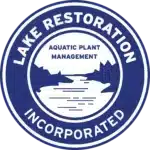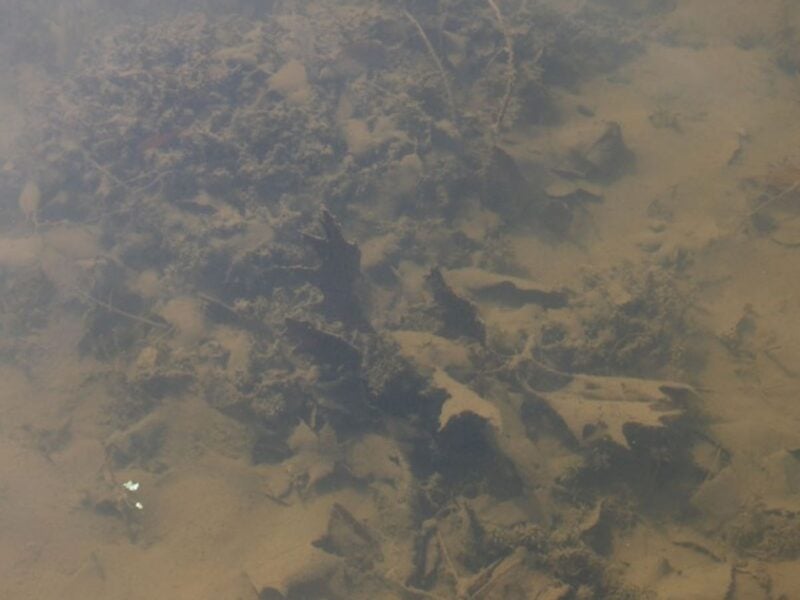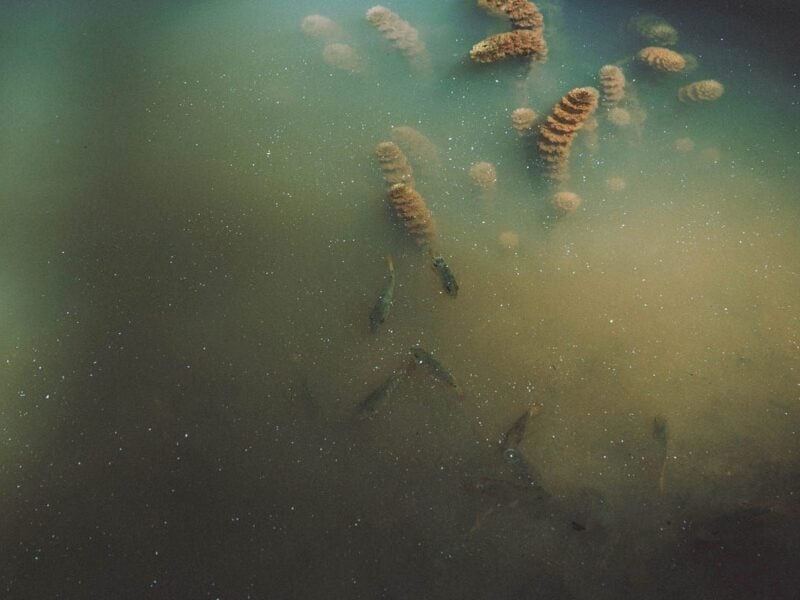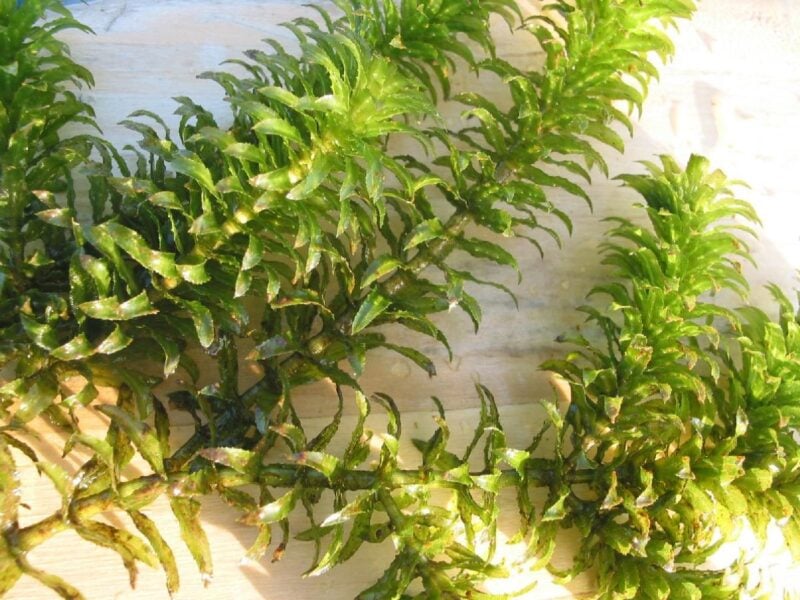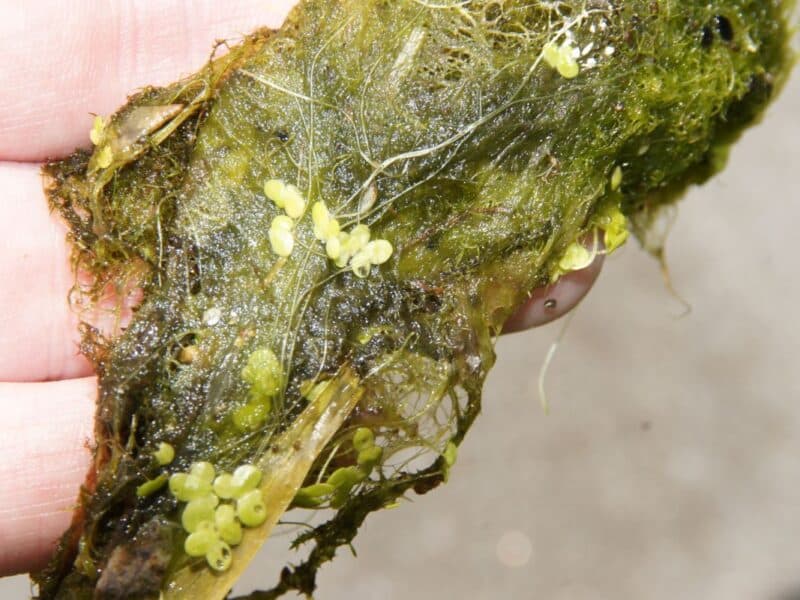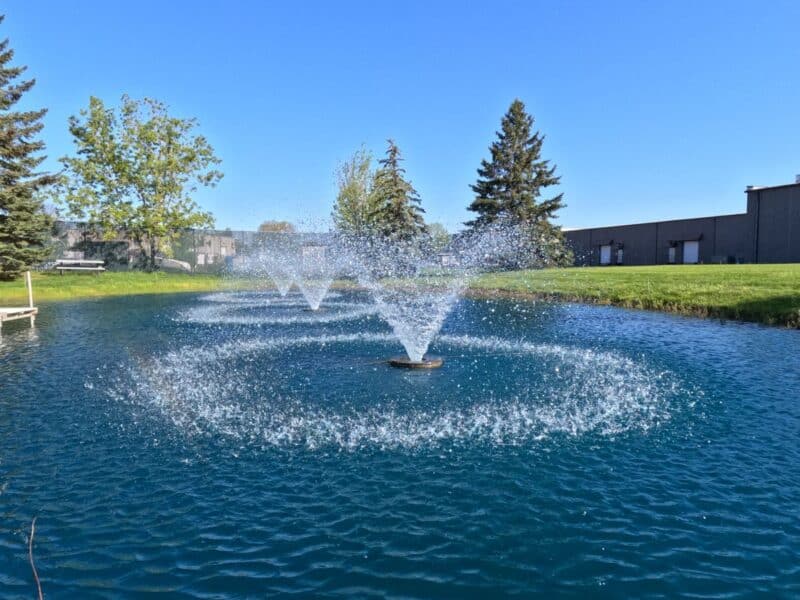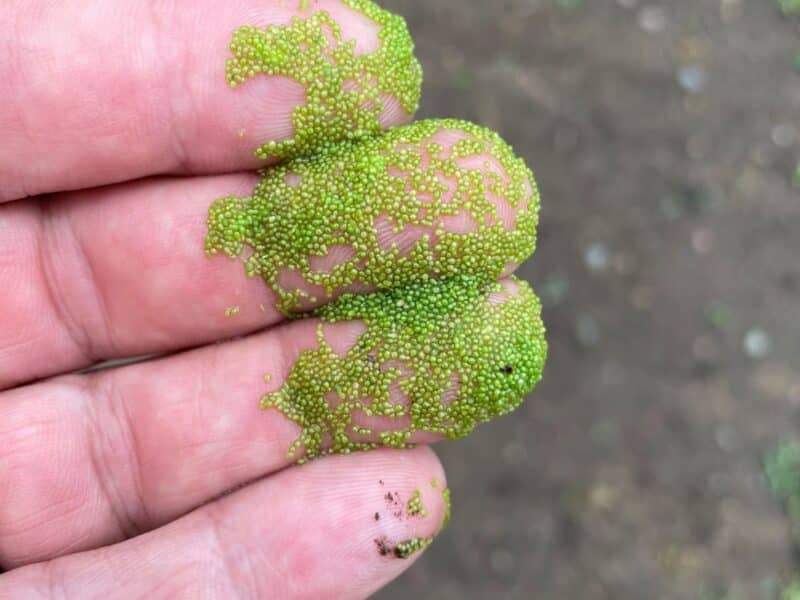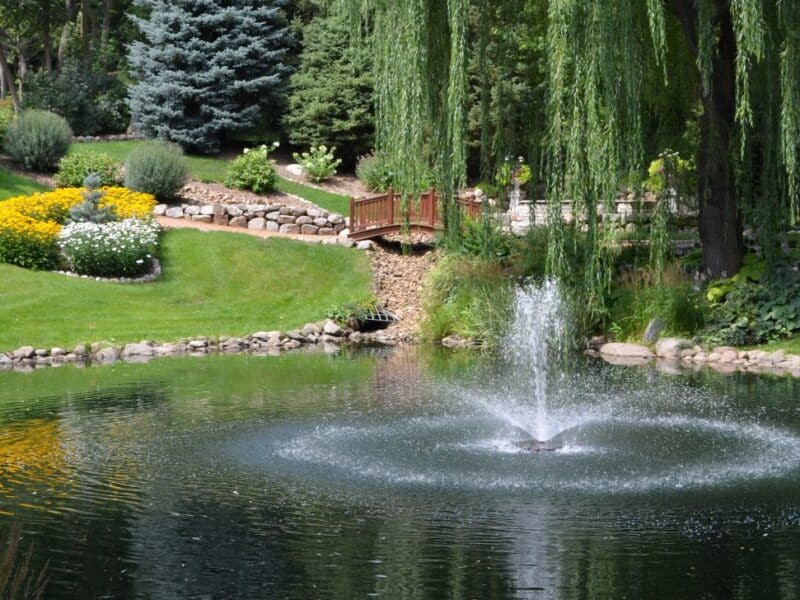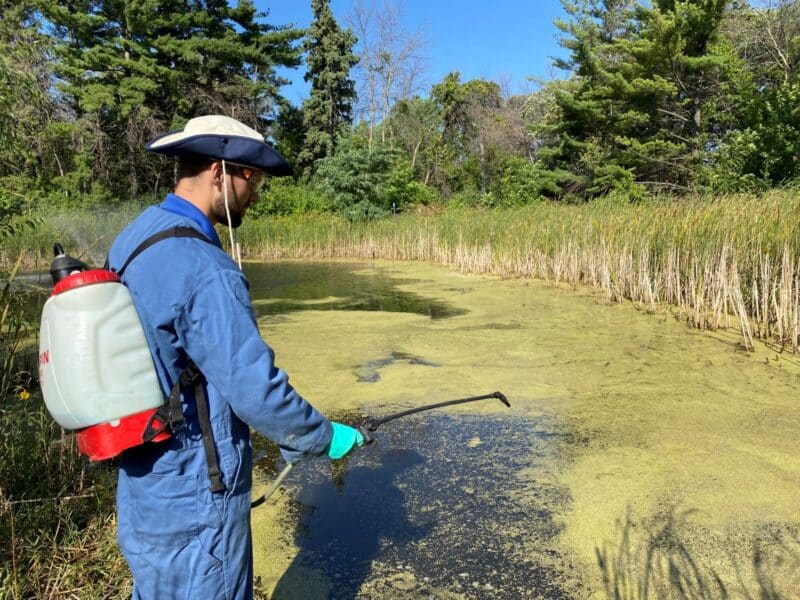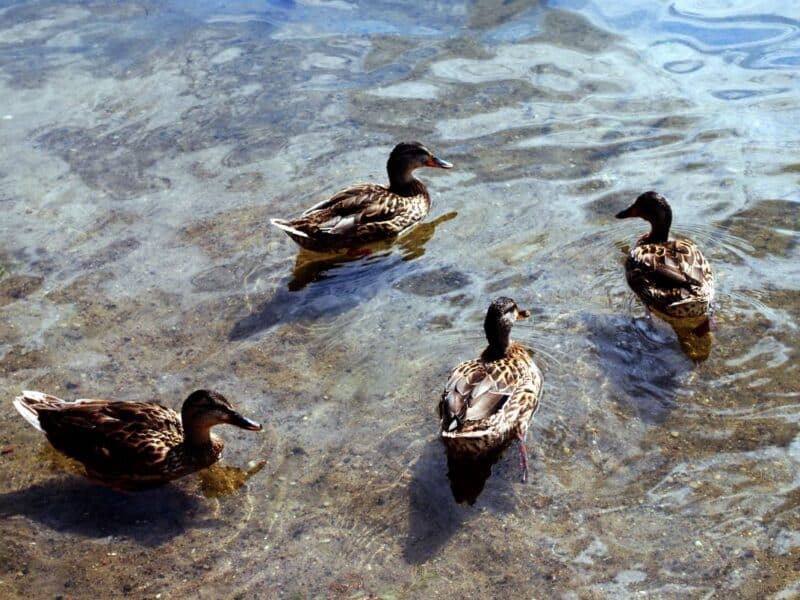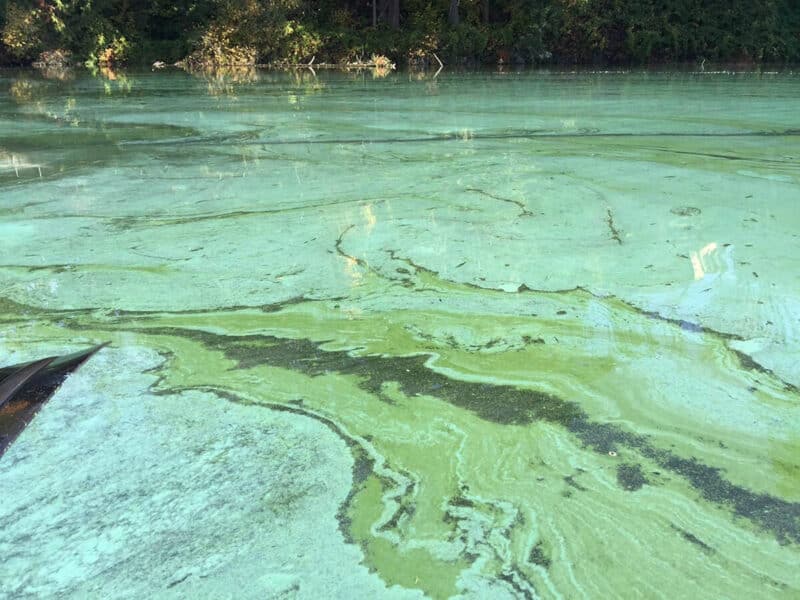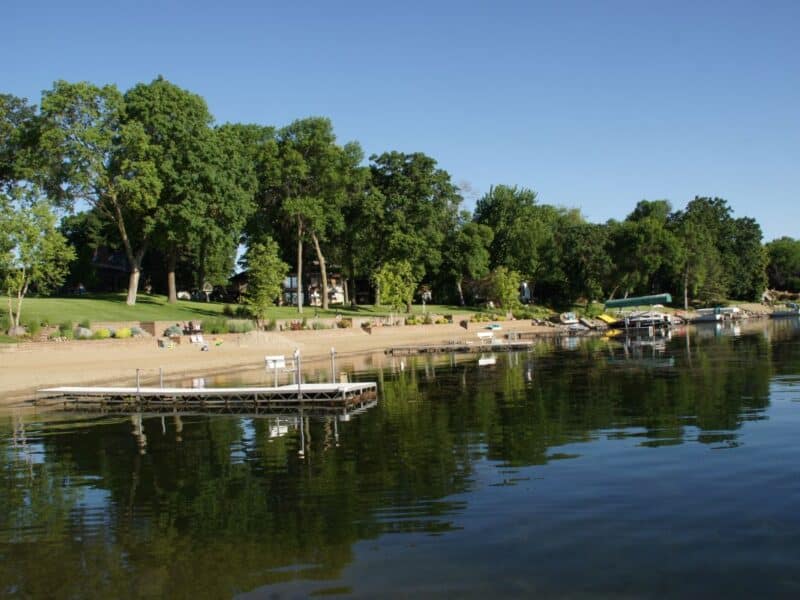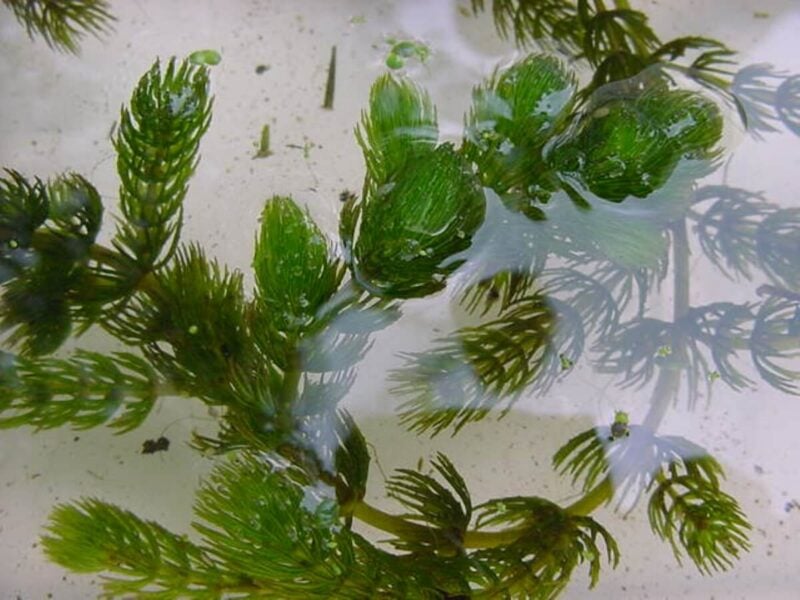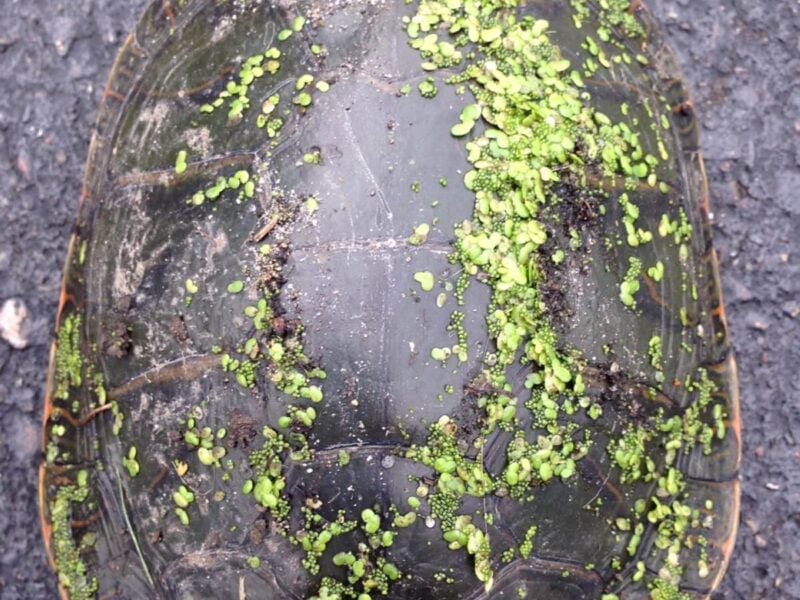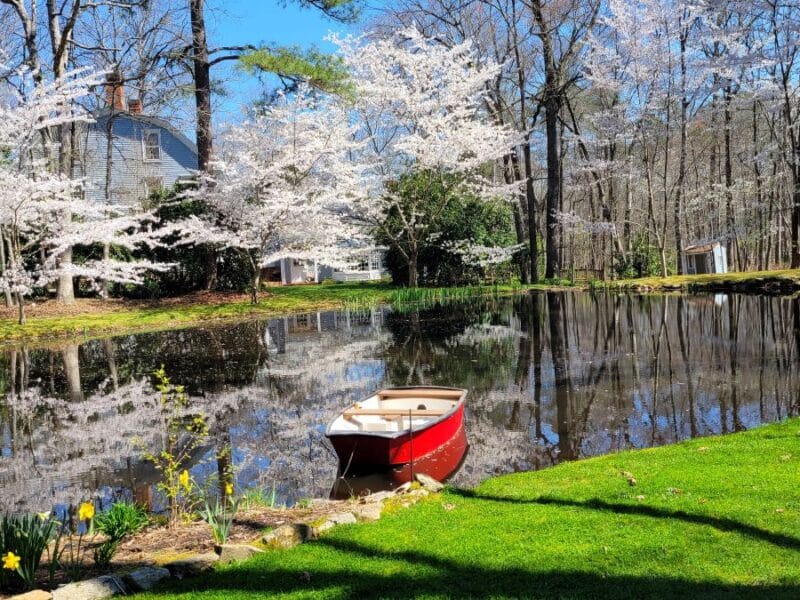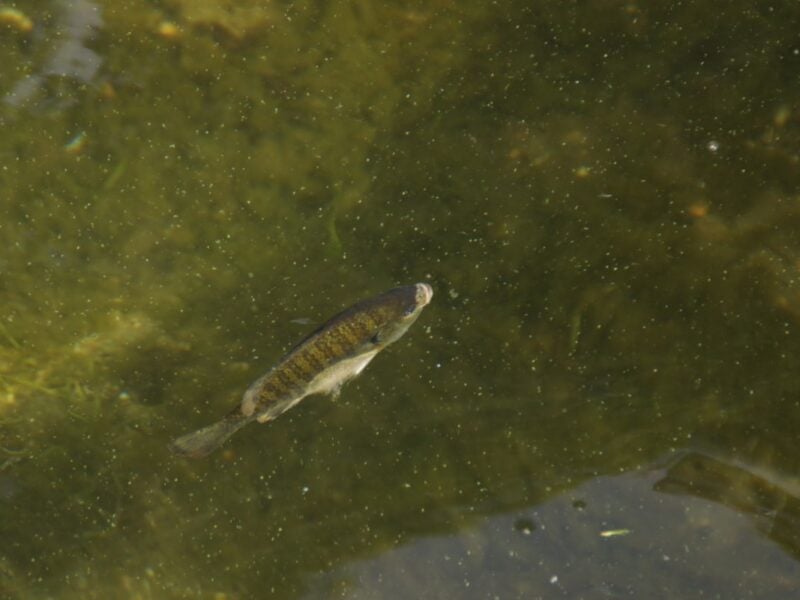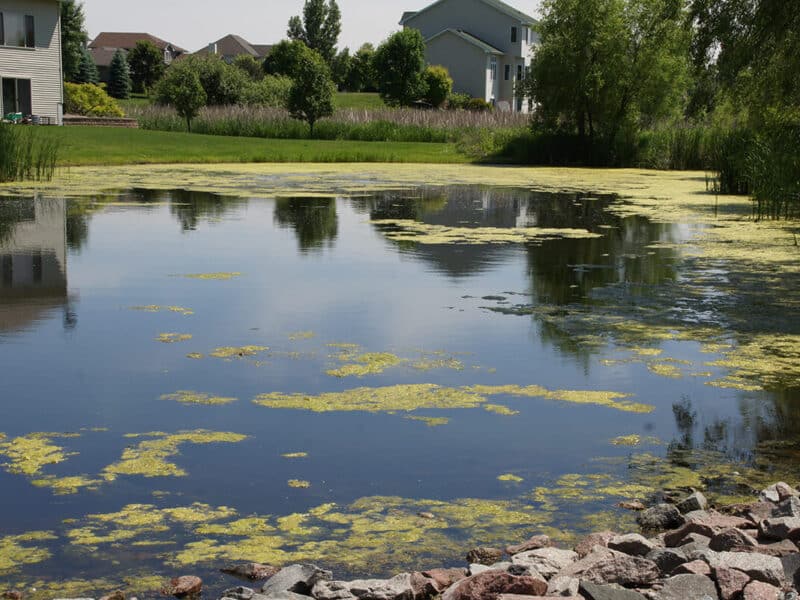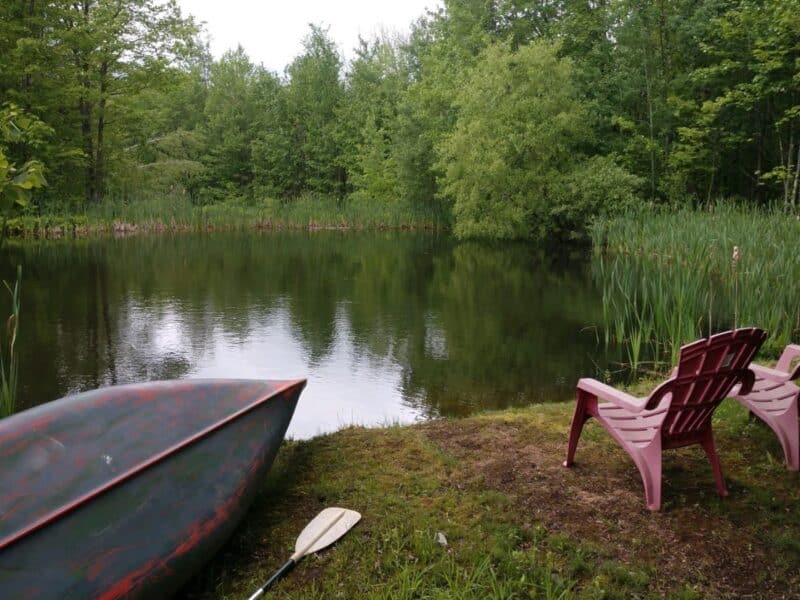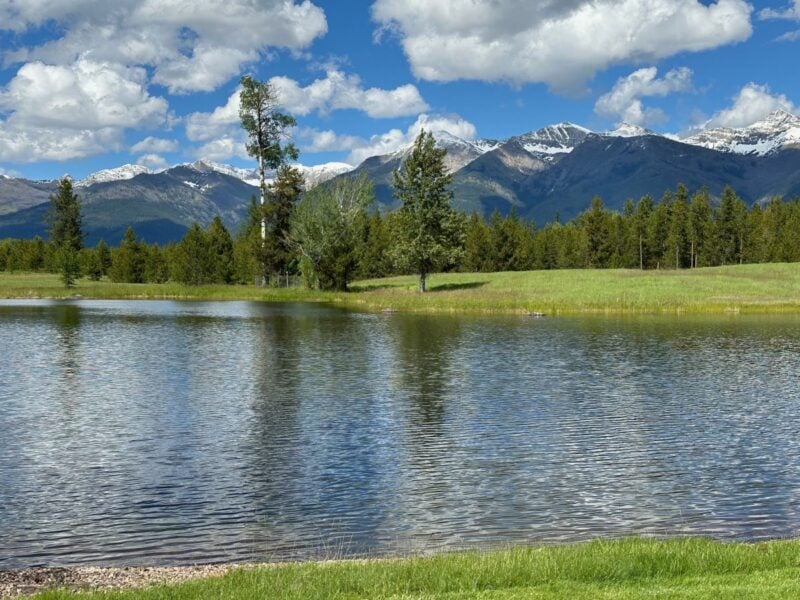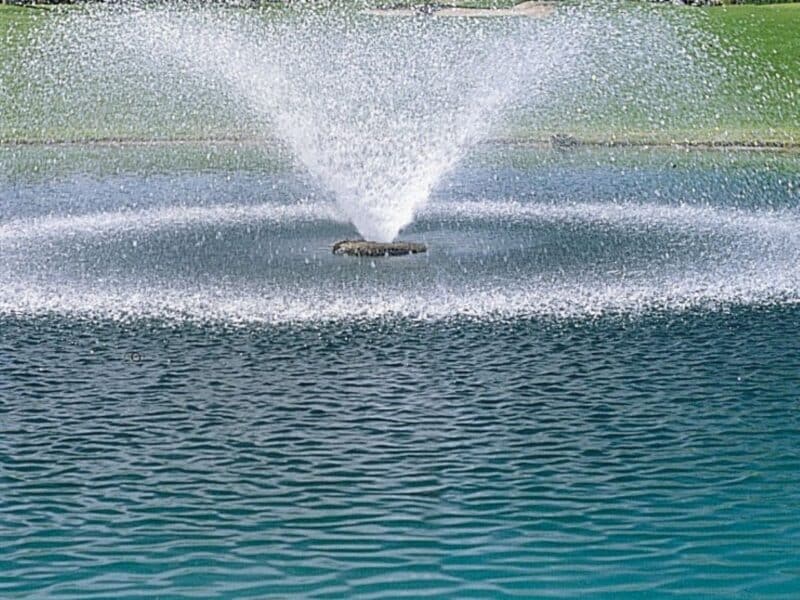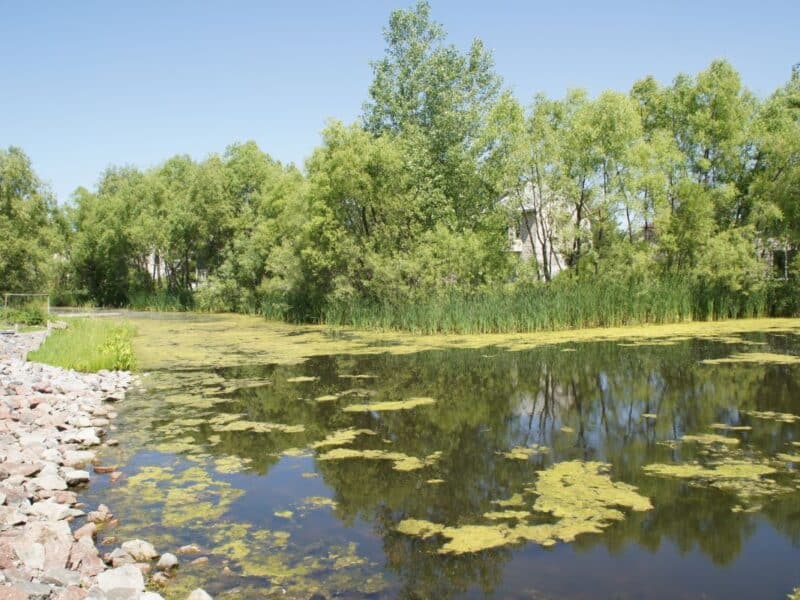Articles
How to Get Rid of Muck in Pond
Overview Pond muck refers to the sludge and organic material that accumulates at the bottom of a pond over time. It’s often comprised of decomposing plant matter, fish waste, and other debris. Muck can create murky water and unpleasant odors, and when left untreated, it can lead to algae or plant growth. Tackling this issue…
How to Clear up Pond
Overview Murky pond water is more than an eyesore; it can disrupt the ecosystem and prevent the aquatic environment from thriving. It is important to know what made the pond murky. Like a doctor remedying an illness, when the cause is known, it can be treated and cleared up. Some causes of cloudy water include…
Hydrilla vs. Milfoil
Overview Hydrilla and watermilfoil are two prominent aquatic plants that share some similarities in appearance and habitat. Both are submerged plants that grow in ponds or lakes and form dense vegetation. These plants are often mistaken for one another, but they have distinct characteristics that set them apart. Understanding their differences is key to managing…
Duckweed and Algae
Overview Duckweed and algae are common aquatic organisms that, when uncontrolled, can create significant challenges for a pond or lake. While small quantities of these are generally safe, these plants’ ability to rapidly grow can quickly make a water feature unusable and potentially harmful for fish and other aquatic life. Duckweed is a plant and…
Pond Fountains In-Depth
Overview Pond fountains are a beautiful yet beneficial addition to a pond. Fountains reduce weed growth and add an aesthetic look to your outdoor oasis. The movement a fountain produces not only makes a pond more attractive but also keeps it fresh and balanced. Why Do Ponds Have Fountains? Installing a fountain in your pond…
Watermeal | Identify and Control
Overview Watermeal, or Wolffia Columbiana, is a tiny rootless floating plant that can sometimes be confused with duckweed. Watermeal looks like tiny little balls while duckweed looks like small clovers floating on the water. These plants can cover an entire pond if not properly controlled. Watermeal weed control will also kill duckweed. Aeration can help…
How to Clean a Pond in Five Steps
Overview Ponds always need to be managed to stay clean and healthy. This blog will outline the five steps you can take to effectively clean and maintain your water body. The steps are: Apply pond dye Treat nuisance algae Manage plant growth Reduce nutrients Consider aeration By following this guide and all product labels properly,…
How to Apply Aquatic Herbicides
Overview Before applying aquatic herbicides, consider some questions: Which type(s) of weeds do you have? What is the treatment area (square footage and average depth)? What are your realistic expectations for the area? Once you have answered these questions, you can move to action: purchase a product that is labeled for effective control of the…
Backyard Duck Pond | A Comprehensive Guide
What is a Duck Pond? A duck pond is a small body of water with the ideal environment and food opportunities for ducks. Almost any pond or pool can become a haven for ducks if it meets the criteria that a duck needs and desires. A duck pond has sunny and shady areas. It also…
Cyanobacteria: What Are They? Are They Dangerous?
Are They Algae? Cyanobacteria[1] are not a type of algae, although they create blooms like algae. Often being referred to as blue-green algae leads to the common misconception they are an algal bloom. To the naked eye, no difference is seen between an algal bloom and a cyanobacterial bloom so it cannot be determined whether…
What Kills Weeds Permanently?
How to Prevent Weeds from Growing? There is no way to completely prevent all weeds from growing on your lake shore or in your pond. However, there are things you can use to help reduce the amount of growth you see during the season. Using nutrient reducers such as PhosControl and MuckMaid can be a…
Coontail vs. Milfoil | Identify & Control
Overview Although coontail and milfoil look similar with their branched stems and bushy leaves, they have a few differing characteristics that aid in the identification of each plant. Coontail feels rough when pulled through the hand and has straight leaves. Milfoil is smoother to the touch and has pairs of leaflets. Another big difference is…
Duckweed and Watermeal: Identify and Control
Overview Duckweed and watermeal are easily confused with one another. However, they can be properly identified by taking a closer look. Duckweed often has tiny, hair-like roots growing into the water, as well as 3 fronds that make it look a lot like a clover. In contrast, watermeal consists of small pieces that look like…
Oxygen: The Most Important Element
Overview Aquatic plants and animals need oxygen to survive, and a water body needs it to stay healthy. One of the most common ways to determine how healthy the water is and how much life it can sustain is by detecting dissolved oxygen levels in ponds. As air and water mix at the surface, oxygen…
Why is pH Important in my Pond?
What is pH? pH is a measure of how acidic or basic (alkaline) water is. The pH scale ranges from 0 to 14, with 7 being neutral. Lower pond pH represents more acidity and higher numbers represent basicity. pH reflects how soluble different minerals and nutrients are (such as copper, lead, phosphorus, nitrogen, and carbon)…
How Does Algae Grow from Nothing?
Overview Algae are single-celled organisms that thrive in nutrient- and sun-rich water bodies. They photosynthesize to produce oxygen during the day and use oxygen in the water at night. Since they’re the bottom of the food chain, they are important to have; however, too many of them can cause oxygen depletion in the water and…
Nitrogen and Phosphorus in Ponds
Nitrogen and Phosphorus in Water Nitrogen and phosphorus are essential nutrients for the life of many organisms. Plants, animals, and humans need nitrogen; plants, animals, and microorganisms need phosphorus. Plants in the water absorb these nutrients through the water and the soil. More available nutrients foster more plant growth. Managing the nutrients in your water…
How to Keep Your Pond Healthy
Overview Knowing the right time to begin treating your pond is half the battle to having a balanced pond ecosystem. Of course, each situation is unique, but there are guidelines as to what should be done and when. Having the knowledge to properly care for your pond will make the treatment process streamlined and simple.…
Pond Fountain Guide
Overview Making the decision to add a fountain to a pond can be a big choice, but it doesn’t have to be overwhelming. There are steps to take that make the process smooth and simple overall. The best fountains are those that meet your needs of improving your water or experience. You can find a…
Types of Pond Algae
What Are Algae? Algae are single-celled, photosynthetic organisms that do not flower and lack roots, stems, leaves, and vascular tissue. The three main types of algae are planktonic algae (suspended in the water), filamentous algae (floating mats of algae on the water), and macroalgae/stoneworts (plant-like algae that grow in the water). Each type has its…
